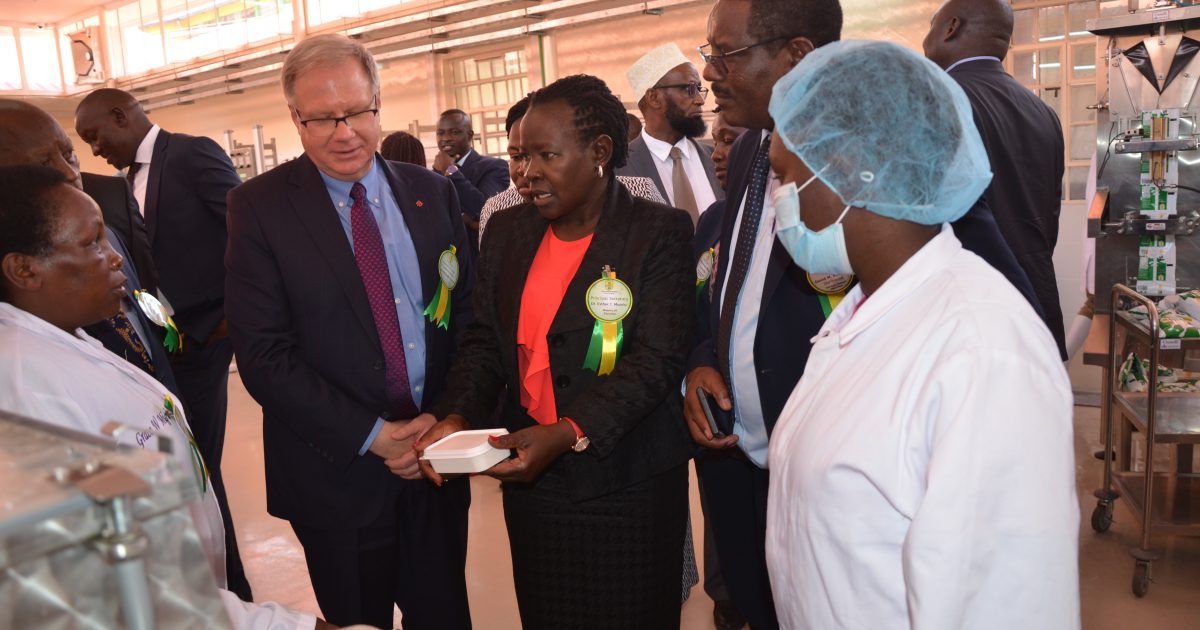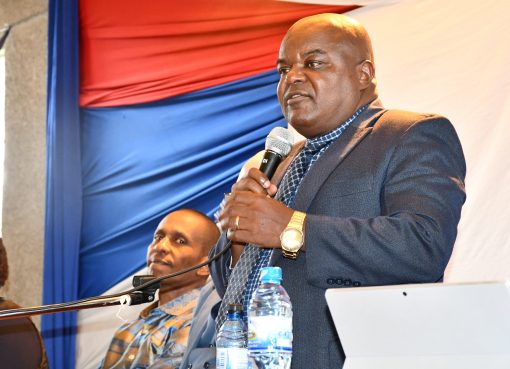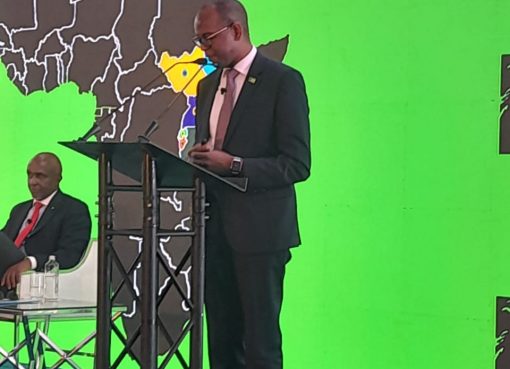The Principal Secretary State Department of Technical and Vocational Education and Training (TVET), Dr. Esther Muoria, has renewed calls for Polytechnics to be autonomous from national examination bodies.
The PS said that a number of Polytechnics had already developed their syllabus and in addition to independently examining their students, they were awarding certificates without relying on bodies like the Kenya National Examination Council (KNEC).
“We will be touring the National Polytechnics together with the Kenya National Qualifications Authority (KNQA) to issue the qualification awarding to these institutions because some of them are already awarding qualifications,” she said.
“In universities, students are admitted, trained, examined, graduated and certified on the same plane, why are we training students and having KNEC examine them?” posed Muoria.Muoria was speaking at the Nyeri National Polytechnic during the handing over ceremony of technical training equipment for the polytechnic’s dairy processing unit.
The equipment was purchased through the Kenya Education for Employment Programme (KEFEP) which is funded by the Canadian government through the Global Affairs Canada (GAC) and implemented by Colleges and Institutes Canada (CICAN).
She revealed that the process of clearing all 10 polytechnics had already started with Meru National Polytechnic becoming the first institution to receive a Qualifications Awarding Institution Certification from KNQA while plans were underway to issue the certification to Kisii, Nyeri and Eldoret National polytechnics.
“We are going all over the National Polytechnics with Technical and Vocational Education and Training Authority (TVETA) ensuring that there is no examination body in these institutions. The institutions are going to be well checked by TVETA so that the certificates they are going to issue will be globally recognized,” she stated.
The CICAN program aims at strengthening the quality of industry response and gender-sensitive skills training programs, and to also deliver trainees who meet requirements of the current job market. Areas of focus include Agriculture, Energy, Engineering, Building and Constructions, Hospitality and Tourism management.
In his remarks which were read on his behalf by PS Muoria, Education Cabinet Secretary, Ezekiel Machogu thanked the Canadian government for its support which comes at a time when the ministry is instituting reforms in the education sector in support of the revival of technical and vocational training.
“I wish to first underscore our appreciation for the delivery of these equipment to our national polytechnics, which will go along away to support the delivery of quality training in our TVET organisations in line with the Government’s agenda,” said the CS.
“I wish to thank the Government of Canada through Global Affairs Canada for funding KEFEP, CICAN’s flagship programme, to the tune of Sh1.9 billion. Since its rollout, KEFEP has established a significant presence in the country, built strong relationships and grown into one of the leading TVET initiatives in the region,” he added.
Additionally, Machogu noted the significant positive impacts of the program key among them being the notable increase in economic opportunities for graduates from TVET institutions building the capacity of TVET institutions and government agencies implementing TVET reform initiatives.
He said that a total of 17 Competency-Based Education and Training (CBET) had already been developed and launched in 10 national polytechnics where more than 200 trainees were benefitting from the technical training.
“So far, KEFEP has been working with the Kenya School of TVET and 10 national polytechnics to ensure the delivery of CBET courses. The 10 national polytechnics have partnered with Canadian colleges, who have trained and supported over 350 TVET instructors in curriculum development, developing and reviewing learning materials including lesson plans and assessment tools, as well as procuring the relevant tools and equipment required to effectively implement the CBET courses,” said the CS.
Also present during the function was the Canadian High Commissioner to Kenya, Christopher Thornley, Nyeri Governor Mutahi Kahiga, TVET Director Tom Mulati, KEFEP Senior Technical Advisor, Joel Oloo, Kenya Association of Technical Training Institutions Principals from various counties and the Nyeri National Polytechnic Principal David Mwangi.
By Wangari Mwangi and Daisy King’ori




